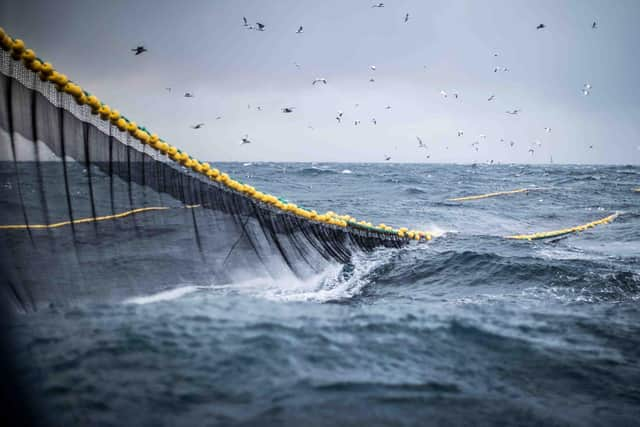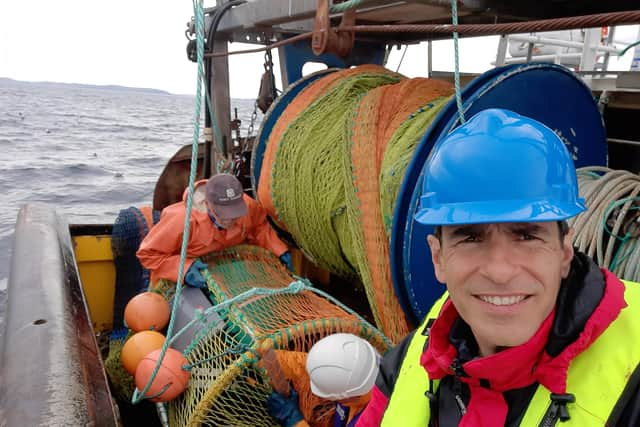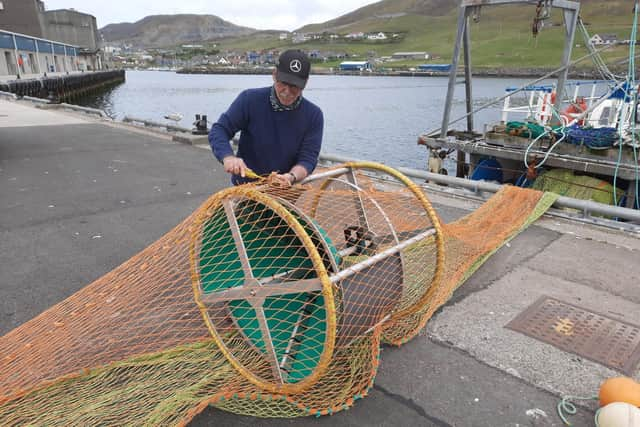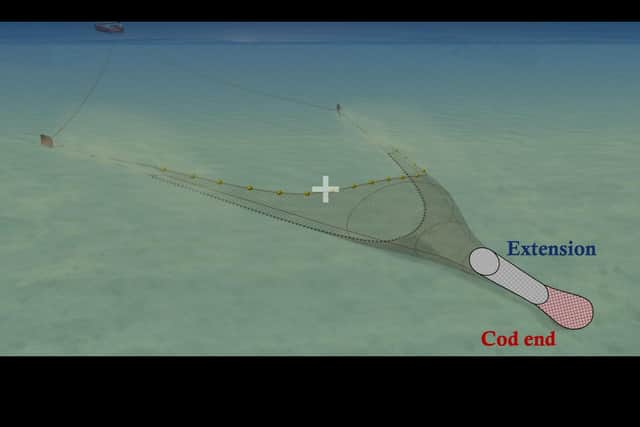Scottish scientists trial ‘intelligent’ fishing net that could stop needless deaths of marine wildlife
It may sound almost too good to be true, but that’s exactly what a team of Scottish researchers has been working on, with the aim of preventing the unnecessary killing of millions of tonnes of fish and thousands of marine creatures around the world each year.
It is estimated that 46 per cent of all marine fish that are discarded are bycatch from trawling – an indiscriminate fishing method that involves dragging a massive net behind a boat, scooping up everything in its path.
Advertisement
Hide AdAdvertisement
Hide AdAnything which is unwanted or not part of the catch allowance is usually thrown back in the sea – typically dead.
Dolphins, whales, turtles, sharks and seabirds, including threatened species, are among the unintended victims.
Now, researchers from Heriot-Watt University have created an underwater robot which uses AI technology to select the intended fish or shellfish and free the rest before pulling the net out of the sea.


It does this by analysing images taken by an underwater stereo camera, which allows it to determine the individual size and species of all marine life captured inside a net.
Then, depending on whether specimens qualify against a crew's intended catch, the device decides whether to retain or free each one using a computer-controlled gate.
Using the system, fishing crews will be able to program trawl nets to catch specific fish or shellfish, according to their size and species, market conditions and allotted quotas, resulting in no discards or bycatch.
Developed by researchers from the Lyell Centre and the National Robotarium at Heriot-Watt University, the sorting device – Smartrawl – has been designed in collaboration with the UK fishing industry.


It can be fitted to existing nets on all sizes of boats and requires no extra cables due to the robot’s patented gate system, which uses the force of the water to open and close.
Advertisement
Hide AdAdvertisement
Hide AdComponents of Smartrawl have already been tested at sea, with further trials due to take place around Shetland later this year using the research vessel Atlantia, operated by the University of the Highlands and Islands.
Inventors believe their intelligent net could end bycatch and help safeguard threatened sealife and fish stocks.


Smartrawl inventor Paul Fernandes, a professor of fisheries science and technology at Heriot-Watt University’s Lyell Centre, is scientific lead for the project.
“More than four million tonnes of marine fish are unintentionally caught by trawlers around the world every year, as well as bycatch of sharks, rays, dolphins, critically endangered turtles and seabirds,” he said.
“The sad reality is that these creatures, more often than not, are returned to the sea dead or dying.
“Current methods used on trawlers are unable to distinguish between different species and animals or give skippers enough information to build an accurate understanding of the size of individual fish prior to capture.
“Smartrawl has been developed to ensure that vessels only catch the fish they’re targeting, releasing other animals back into their natural environment quickly and without harm.


“As a result, we’re confident that discarding and bycatch could quickly become a thing of the past and our precious marine life preserved.”
Advertisement
Hide AdAdvertisement
Hide AdDavid Richardson, chief entrepreneurial executive at Heriot-Watt University, said: “Smartrawl presents a significant step towards benefiting the marine environment whilst protecting the business reputation of seafood producers and contributing to the UK economy.
“Significantly, it has the potential to revolutionise fisheries around the world by supporting them to be more commercially viable and sustainable.
Underwater robots deployed in pioneering study of Scotland's coastal waters to assess fishing impact
“Across Heriot-Watt’s breadth of research facilities, institutions and campuses, we’re delivering real-world impact every day, developing ground-breaking research into commercial applications and pioneering solutions to some of our planet's most pressing challenges.”
The project has been carried out in partnership with Fisheries Innovation & Sustainability (FIS), a coalition of seafood suppliers and retail businesses, with support from the state-backed UK Seafood Innovation Fund.
Comments
Want to join the conversation? Please or to comment on this article.